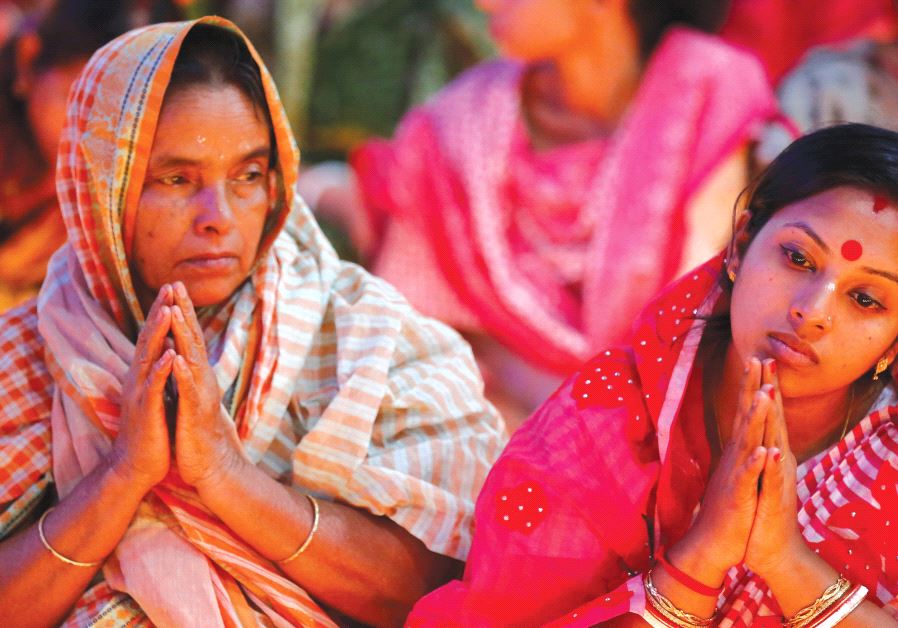Jews should stand in solidarity with the persecuted Hindus of Bangladesh
As Jews, we have an obligation to stand by the Hindus of Bangladesh during their hour of need
 HINDU DEVOTEES sit together on the floor of a temple to observe Rakher Upabash for the last day, in Dhaka, B
HINDU DEVOTEES sit together on the floor of a temple to observe Rakher Upabash for the last day, in Dhaka, B